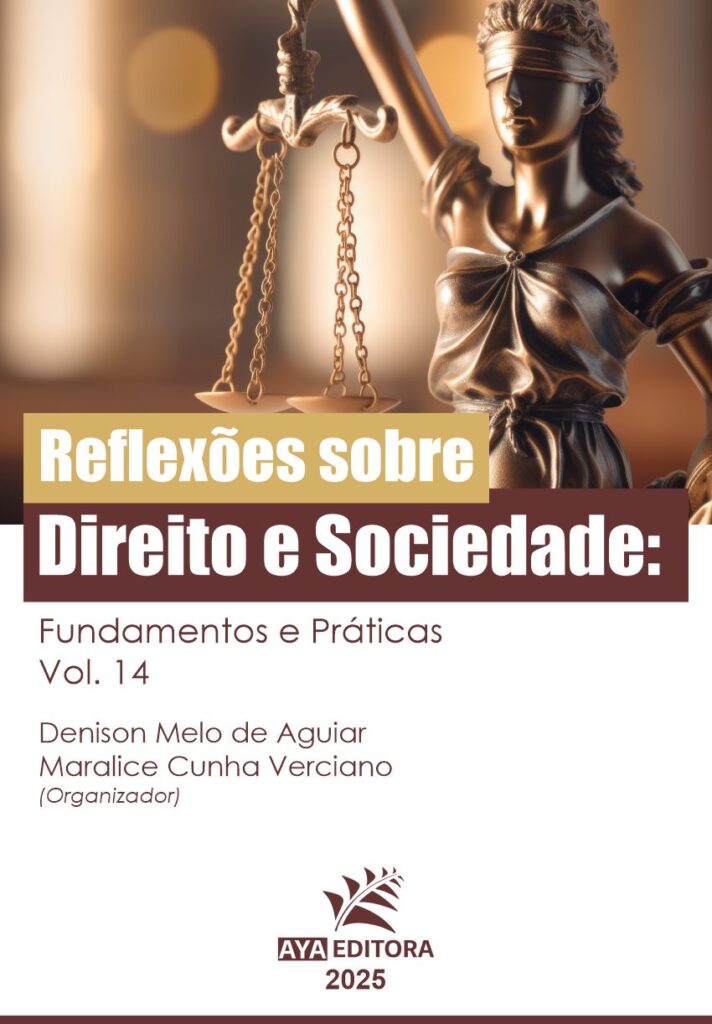
Liberdade de Expressão Vs. Discurso de Ódio nas Redes Sociais e seus Limites Legais
Freedom of Expression Vs. Hate Speech on Social Media and Its Legal Limits
Autores:
Isa Omena Machado de Freitas
João Pedro Costa e Rocha
ISBN (Livro):
978-65-5379-765-9
DOI (Livro):
10.47573/aya.5379.3.1
DOI (Capítulo):
10.47573/aya.5379.3.1.32
N° páginas:
Pages
Formato:
Livro Digital (PDF)
Publicado em:
04/07/2025
Licença:
Resumo
O presente estudo discute a liberdade de expressão e o discurso de ódio nas redes sociais, discorrendo seus limites jurídicos no Brasil. A liberdade de expressão é um direito fundamental garantido e protegido pela Constituição Federal Brasileira, pilar fundamental da democracia brasileira, porém, não é um direito absoluto. As redes sociais facilitaram a comunicação e a forma como os indivíduos se expressam, por outro lado, fortaleceram o discurso de ódio, o que levou à questão central da pesquisa: qual o limite jurídico entre liberdade de expressão e discurso de ódio no ordenamento jurídico brasileiro? O estudo define e diferencia os tipos de discurso de ódio, distinguindo formas explícitas e camufladas, e analisa seu choque com outros direitos fundamentais, indicando uma lacuna no ordenamento jurídico brasileiro: a falta de legislação específica definidora do discurso de ódio, o que dificulta a responsabilização das redes sociais e seus usuários. O trabalho também discute desafios como anonimato e algoritmos nas redes sociais, que podem estar ligados diretamente a crescimento do discurso de ódio nas redes sociais. Concluiu-se que é necessário e urgente estabelecer critérios claros para equilibrar a liberdade de expressão e o discurso de ódio, os limitando e punindo quem pratica o discurso de ódio.
Palavras-chave: direitos fundamentais; discurso de ódio; liberdade de expressão; limites jurídicos; redes sociais.
Abstract
This study discusses freedom of expression and hate speech on social media, and discusses their legal limits in Brazil. Freedom of expression is a fundamental right guaranteed and protected by the Brazilian Federal Constitution, a fundamental pillar of Brazilian democracy. However, it is not an absolute right. Social media has facilitated communication and the way individuals express themselves. On the other hand, it has strengthened hate speech, which led to the central question of the research: what is the legal limit between freedom of expression and hate speech in the Brazilian legal system? The article defines and differentiates the types of hate speech, distinguishing explicit and camouflaged forms, and analyzes its conflict with other fundamental rights. It identifies a gap in the Brazilian legal system: the lack of specific legislation defining hate speech, which makes it difficult to hold social media and its users accountable. The work also discusses challenges such as anonymity and algorithms on social media, which may be directly linked to the growing hate speech on social media. It is concluded that it is necessary and urgent to establish clear criteria to balance freedom of expression and hate speech, limiting them and punishing those who practice hate speech.
Keywords: fundamental rights; hate speech; freedom of expression; legal limits; social networks.
Ler On-line

